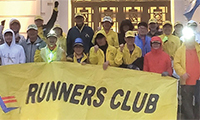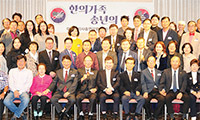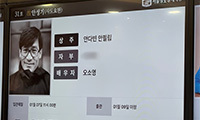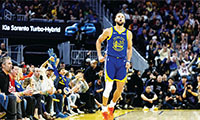So what’s not to like?
Plenty, it would seem, if a few cranky but vocal contrarians are to be believed.
Certainly, the prospect of career oblivion has not endeared print journalists to the digital revolution. With readers coming to expect free content on the Web, circulation and advertising revenue have plummeted for most newspapers and magazines. As the old media struggles to adapt in a rapidly changing environment, no clear solution has yet appeared. Some publications believe that e-readers like Amazon’s Kindle and Apple’s new iPad present a new and possibly lucrative vehicle for their content.
Speaking of Steven P. Jobs, the chief executive of Apple, one industry insider suggested to The Times at least one leader of the new media is in no rush to hasten the demise of traditional publishing: “Steve believes in old media companies and wants them to do well. He believes democracy is hinged on a free press and that depends on there being a professional press.’’
Meanwhile, some of those companies, including The New York Times, are looking for ways to charge for their material on the Web without scaring away too many readers. The Times is not the only newspaper looking to get reimbursed for its content. But the example of one New Yorkarea newspaper is not encouraging. Newsday, based on Long Island, put up a paywall on its Web site in October, charging readers $5 a week for full access. As of January 26, only 35 people had subscribed (although all home subscribers, some 400,000 families, have access to the site).
Even some fervent early advocates of the Web are now questioning its direction. Leading the pack is Jaron Lanier, a pioneering computer scientist who now warns of “hive thinking’’ and “digital Maoism’’ taking over the Internet, The Times reported. In his book “You Are Not a Gadget,” he writes that “authors, journalists, musicians and artists are encouraged to treat the fruits of their intellects and imaginations as fragments to be given without pay to the hive mind.”
Another skeptical group, musicians, are also railing against progress, some by clinging to the warmer sound of analog-era artifacts like vinyl records, magnetic tape and vacuum tube guitar amps. As for MP3’s, they may be convenient, but many musicians question their sound quality and the long-term effects of easy or free downloads.
“I would pick this as the absolute worst time to connect with people through music,’’ Jack White of The White Stripes told Robert Hilburn of The Los Angeles Times. “Today’s generation takes a lot for granted when it comes to music. They don’t buy the CD, but they’ll download it and give it to their friends.’’
Or as Neil Young, who first gained fame as a rocker in the countercultural 1960s, put it, “Apple has made music into wallpaper.’’
스마터리빙
more [ 건강]
[ 건강]이제 혈관 건강도 챙기자!
[현대해운]우리 눈에 보이지 않기 때문에 혈관 건강을 챙기는 것은 결코 쉽지 않은데요. 여러분은 혈관 건강을 유지하기 위해 어떤 노력을 하시나요?
 [ 건강]
[ 건강]내 몸이 건강해지는 과일궁합
 [ 라이프]
[ 라이프]벌레야 물럿거라! 천연 해충제 만들기
 [ 건강]
[ 건강]혈압 낮추는데 좋은 식품
[현대해운]혈관 건강은 주로 노화가 진행되면서 지켜야 할 문제라고 인식되어 왔습니다. 최근 생활 패턴과 식생활의 변화로 혈관의 노화 진행이 빨라지고
사람·사람들
more
LA 러너스클럽 새해맞이 등반 행사
LA 러너스클럽(회장 대니얼 임)은 지난 1일 새해맞이 그리피스팍 등반 행사를 가졌다. 이날 회원 30여 명은 쏟아지는 비 속에서도 그리피스팍…

미주한의사총연 송년행사
미주한의사총연합회(회장 조본환·이사장 서영수) 송년회가 지난달 14일 LA 옥스포드 팔레스 호텔에서 열렸다. 이날 행사에서는 프란시스코 김 캘…
[인터뷰-문경환 한인회장] “캔자스, 이민자들에 … 1
“캔자스시티는 삶의 속도와 기회의 균형이 잘 맞는 도시입니다. 제2의 인생을 시작하기에 더없이 좋은 곳이죠.”29일 본보를 방문한 문경환(61…
일사회 창립 14주년 기념식 및 송년행사
전·현직 민주평통자문위원들의 모임인 일사회(회장 박철웅)는 지난 16일 용수산에서 창립 14주년 기념식 및 송년회를 개최했다. 이날 행사에는 …
LA평통 통일전략분과 상견례
LA 평통(회장 장병우) 통일전략분과(위원장 이정현)는 지난 27일 형제갈비에서 상견례 겸 간담회를 개최했다. 이날 모임에서는 위원 간 교류를…
많이 본 기사
- 마두로 축출에 갈라진 지구촌… “국제법 위반” vs “환영”
- [마두로 체포 막전막후] ‘델타포스’ 침투 5분만에 전광석화 체포… 은신처 대피 못해
- 캘리포니아 ‘직장 내 권리 알림법’ 시행 돌입
- 트럼프, 베네수엘라 전격 군사작전… 마두로 ‘축출’
- 조용필 한달음에..故 안성기 빈소, 박중훈→이정재 조문 행렬
- 가주 DMV 리얼 ID 발급 ‘전산 오류’
- ‘대상’ 이상민 잘나가니 발끈..’성범죄자’ 고영욱→ ‘도박’ 신정환, 번갈아가며 저격
- 연방 항소법원 “총기 공개적 휴대 금지 가주법 위헌”
- 루비오 국무, ‘베네수엘라 총독’ 되나
- [이민법 칼럼] 시민권 박탈
- [신년 집중기획/2026 새해 이렇게 바뀐다] 이민 제도 5대 변화… 영주권자까지도 입국시 안면인식 생체정보 수집
- 트럼프, 베네수엘라 전격 군사작전… 마두로 ‘축출’
- 스마트폰·SNS 조기 노출… 청소년의 뇌가 위험하다
- 가주, 개인정보 보호법 ‘초강수’
- 마두로 전격 체포 뒤엔 ‘스텔스 드론·밀정’ 있었다
- 정보석, 故이순재 이어 故안성기까지.. “또 한 분의 큰 스승 편히 가세요”
- LAX 또 항공편 대거 취소·지연 사태
- ‘국민 배우’ 안성기 별세 혈액암 투병, 향년 74세
- 메디케이드 정보 이민국 공유 ‘허용’
- 입국 제한 확대… 추가 20개국 이민 신청 전면 중단
- 박지성♥김민지, 새해 근황..훌쩍 큰 딸·아들 공개
- BTS 정국, ‘접근금지’ 요청했지만..브라질女 집 찾아가 난동 ‘검거’
- “트럼프 폭주… 달러 패권 흔들”
- Crinks 세력이 크게 꺾이는 그런 해가…
- [데이빗 이그나티우스 칼럼] 신년맞이 퀴즈: 2026년에는 좋은 일이 있을까?
- 한인타운 인근 상가서 묻지마 총격 2명 사상
- 60년 만 ‘투자 귀재’ 없는 첫 주
- “경찰관 노고에 진심으로 감사해요”
- [만화경] 집권 2년 차 징크스
- 시간이 머무는 곳
- 백화점 ‘삭스피프스’… ‘챕터11’ 보호신청 검토
- 급조된 노력으론 명문대 힘들어… ‘새해부터 준비할 일’
- 보류는 끝이 아닌 ‘다시 뛰기 위한 준비시간’
- 하늘길 막은 ‘불청객’… 인천공항 운항 피해 5년새 107건
- 재정보조만으로 부족한 대학 학비… 장학금 신청으로 해결
- “재정보조금이 대학의 NPC결과와 차이가 나는 이유”
- 황희찬 ‘PK 1골+1도움’… 울버햄프턴, 개막 20경기 만에 첫 승
- 30년 모기지, 최저치 6.15%로 지난해 마감
- AI 시대에 제안하는 학부모님들을 위한 새해 결심
- “올해 도약 원년”… 토종 AI유니콘, 글로벌 시장 정조준
- 셀트리온, 미 뉴저지 생산시설 인수… CDMO 영토 넓힌다
- 가주 ‘억만장자세’ 추진… 파문 확산
- 오픈AI, 직원 주식보상도 ‘역대급’
- “미, 상호관세 부과 능력 계속 유지해야”
- 지표 보면 경제 알 수 있다… 경기 향방 가늠 10대 지표
- 소비자들 지갑 열까?… 올해 소비 전망 대체로 ‘양호’
- 중가주 ‘한인 이민사’ 나왔다
- [한인 은행·업체 시무식 화보] “붉은 말 기운받고 한인 경제 도약에 기여하자”
- ‘브라운 50점’ 보스턴, 클리퍼스 꺾고 3연승
- 역대 최고령 45세 윌리엄스 호주오픈 여단식 본선 출전
1/5지식톡

-
 미 육군 사관학교 West Poin…
0
미 육군 사관학교 West Poin…
0https://youtu.be/SxD8cEhNV6Q연락처:wpkapca@gmail.comJohn Choi: 714-716-6414West Point 합격증을 받으셨나요?미 육군사관학교 West Point 학부모 모…
-
 ☝️해외에서도 가능한 한국어 선생님…
0
☝️해외에서도 가능한 한국어 선생님…
0이 영상 하나면 충분합니다!♥️상담신청문의♥️☝️ 문의 폭주로 '선착순 상담'만 진행합니다.☎️ : 02-6213-9094✨카카오톡ID : @GOODEDU77 (@골뱅이 꼭 붙여주셔야합니다…
-
 테슬라 자동차 시트커버 장착
0
테슬라 자동차 시트커버 장착
0테슬라 시트커버, 사놓고 아직 못 씌우셨죠?장착이 생각보다 쉽지 않습니다.20년 경력 전문가에게 맡기세요 — 깔끔하고 딱 맞게 장착해드립니다!장착비용:앞좌석: $40뒷좌석: $60앞·뒷좌석 …
-
 식당용 부탄가스
0
식당용 부탄가스
0식당용 부탄가스 홀세일 합니다 로스앤젤레스 다운타운 픽업 가능 안녕 하세요?강아지 & 고양이 모든 애완동물 / 반려동물 식품 & 모든 애완동물/반려동물 관련 제품들 전문적으로 홀세일/취급하는 회사 입니다 100% …
-
 ACSL 국제 컴퓨터 과학 대회, …
0
ACSL 국제 컴퓨터 과학 대회, …
0웹사이트 : www.eduspot.co.kr 카카오톡 상담하기 : https://pf.kakao.com/_BEQWxb블로그 : https://blog.naver.com/eduspotmain안녕하세요, 에듀스팟입니다…
케이타운 1번가
오피니언

Crinks 세력이 크게 꺾이는 그런 해가…
 윤경환 서울경제 뉴욕 특파원
윤경환 서울경제 뉴욕 특파원 60년 만 ‘투자 귀재’ 없는 첫 주
 데이빗 이그나티우스 워싱턴포스트 칼럼니스트
데이빗 이그나티우스 워싱턴포스트 칼럼니스트 [데이빗 이그나티우스 칼럼] 신년맞이 퀴즈: 2026년에는 좋은 일이 있을까?
 조옥규 수필가
조옥규 수필가 시간이 머무는 곳
 홍병문 / 서울경제 논설위원
홍병문 / 서울경제 논설위원 [만화경] 집권 2년 차 징크스
 손영아 문화 칼럼니스트 / YASMA7 대표
손영아 문화 칼럼니스트 / YASMA7 대표 [손영아의 문화산책] ‘슈만의 연가’… 170년 전 멈춘 시간, 끝나지 않은 사랑
 김재천 서강대 국제대학원 교수
김재천 서강대 국제대학원 교수 [김재천 칼럼] 2026년, 미·중 대타협은 가능할까
 조지 F·윌 워싱턴포스트 칼럼니스트
조지 F·윌 워싱턴포스트 칼럼니스트 [조지 F. 윌 칼럼] AI 투자 붐이 걱정된다면?… 역사적 맥락을 보라
 이희숙 시인·수필가
이희숙 시인·수필가 [금요단상] 차가운 길, 이불 한 장의 온기
1/3지사별 뉴스

뉴욕시 첫 무슬림 시장 맘다니 취임
미국 최대도시이자 경제 수도로 꼽히는 뉴욕시의 첫 무슬림·남아시아계 시장이자 스스로를 민주사회주의자라고 부르는 조란 맘다니 신임 뉴욕시장이 새…
뉴욕시민 기대수명 82.6세⋯팬데믹 이전 회복

건국 250주년 워싱턴 모뉴먼트 라잇쇼
워싱턴 DC 내셔널 몰 중심에 위치한 워싱턴 모뉴먼트(Washington Monument)가 화려한 불빛으로 장식됐다. 지난 31일 새해 카운…
“소확행<작지만 확실한 행복> 즐겨요”

트럼프, 베네수엘라 전격 군사작전… 마두로 ‘축출’
눈을 가리고 수갑을 찬 채 압송되는 니콜라스 마두로 베네수엘라 대통령의 모습. 트럼프 대통령이 3일 트루스소셜에 공개한 것이다. [로이터]미국…
중부 캘리포니아 ‘한인 이민사’ 나왔다




















































.png)


댓글 안에 당신의 성숙함도 담아 주세요.
'오늘의 한마디'는 기사에 대하여 자신의 생각을 말하고 남의 생각을 들으며 서로 다양한 의견을 나누는 공간입니다. 그러나 간혹 불건전한 내용을 올리시는 분들이 계셔서 건전한 인터넷문화 정착을 위해 아래와 같은 운영원칙을 적용합니다.
자체 모니터링을 통해 아래에 해당하는 내용이 포함된 댓글이 발견되면 예고없이 삭제 조치를 하겠습니다.
불건전한 댓글을 올리거나, 이름에 비속어 및 상대방의 불쾌감을 주는 단어를 사용, 유명인 또는 특정 일반인을 사칭하는 경우 이용에 대한 차단 제재를 받을 수 있습니다. 차단될 경우, 일주일간 댓글을 달수 없게 됩니다.
명예훼손, 개인정보 유출, 욕설 등 법률에 위반되는 댓글은 관계 법령에 의거 민형사상 처벌을 받을 수 있으니 이용에 주의를 부탁드립니다.
Close
x